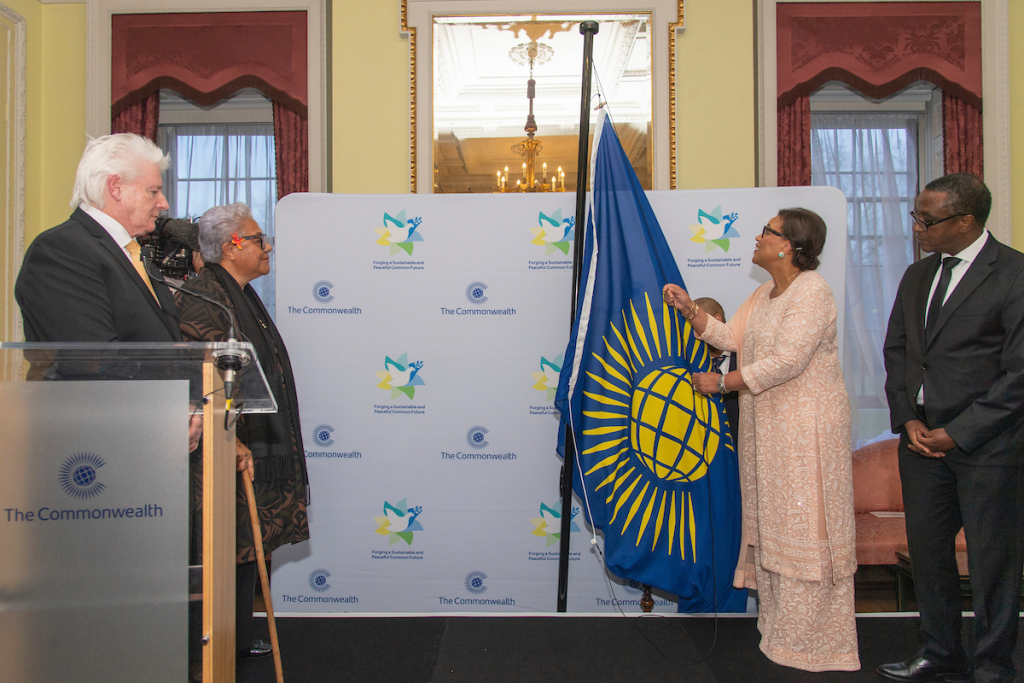BY ANTONY MUTUNGA
Digitalization is accelerating big time and those who lack understanding and the skills required will soon be left behind. The digital shift is happening in every sector from agriculture to the health, services and manufacturing sector. Artificial Intelligence (AI) is becoming critical to almost all sectors, hence requiring everyone especially public sector officials to be well trained.
As a result, the Commonwealth Secretariat and Intel have partnered to launch a digital learning platform to enable public sector officials in 56 countries to understand and harness emerging technologies to achieve development goals. The platform is part of the “digital readiness for public sector leaders” programme which aims at unlocking the full benefits of digitalization to countries – it is expected to demystify AI among senior officials across the Commonwealth and raise awareness of its potential applications in various sectors, in view of the current needs and digital readiness of respective countries.
With digitalization fast becoming the norm in business, government and everyday life, the digital learning plan strives at closing the global AI divide. According to Ms. Sarah Kemp, Vice President of Intel, digitization drives benefits for governments and their citizens, including Gross Domestic Product (GDP) growth, job creation, social inclusion along with improvement of services, as well as governance with increased participation, more transparency and efficiency.
“For countries to remain competitive in the global economy, it is important for them to invest in expanding digital readiness for all and upskilling current and future workforces for an AI-ready world,” she said.
The learning platform will contain a number of features that will allow learners to develop strategies, scalable solutions and action plans for digital transformation in their communities and countries. It will focus in digital governance, inclusivity, infrastructure and technology.
Commonwealth Secretary-General Patricia Janet Scotland, says the programme will provide a unique opportunity for public sector workers and leaders in member states to be trained in the fundamentals of AI and Machine Learning, laying the foundations for trust in these technologies, and confidence so they can be used effectively and responsibly.
It is clear that emerging technology is shaping the future of the world from shifting how things are done in all industries. Henceforth, commonwealth countries, especially developing countries must not be left behind.
According to Johnston Busingye, High Commissioner of Rwanda to the United Kingdom, digital readiness is shaping the present and the future, and Commonwealth countries must not be left behind.
“Artificial Intelligence and machine learning can propel smart agriculture, environmental monitoring and protection, better coastal management, a smart fishing industry, an enhanced tourism industry, better lagoon monitoring, and smart use and generation of renewable energy, among many other sectors which have implications today and even more so tomorrow,” he said.
Without a doubt, the rise of the digital economy is creating new economic pathways and job opportunities – digital economy is expected to play a key role in achieving the target of Sh263.8 million ($2 million) worth of trade amongst member countries by 2030, as reflected in the Commonwealth Connectivity Agenda.
It is also critical to tackle the widening gap between those who have access to digital connectivity and AI technology and those who do not. Those living in developing nations and small states are more likely to be affected by the lack of digital readiness as compared to developed nations and emerging markets.
The Commonwealth can bridge the gap by developing a platform to assist her small member states to build domestic transformative technologies and AI capacity to strengthen their economic resilience, mitigate climate change and upskill their workforces.


